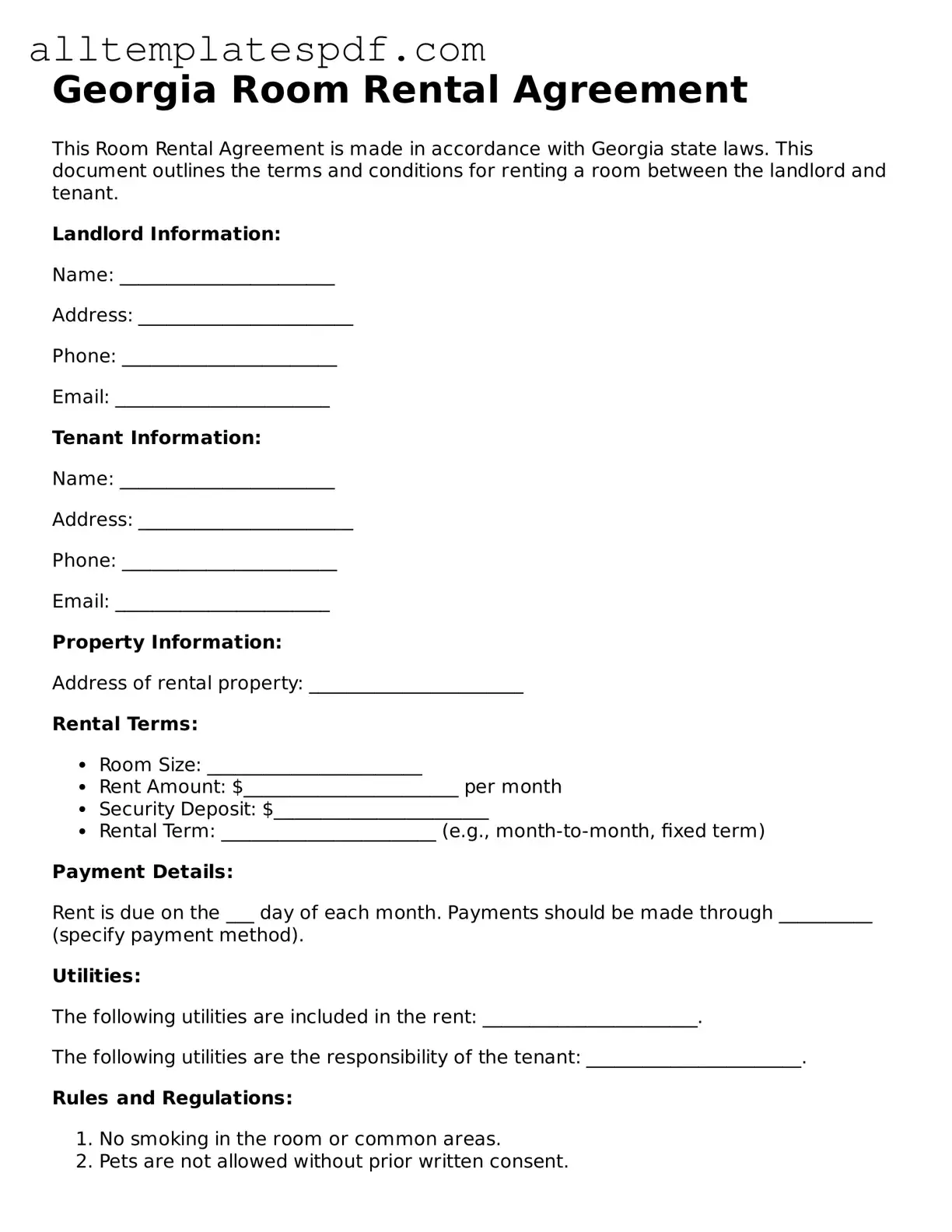Blank Room Rental Agreement Template for the State of Georgia
A Georgia Room Rental Agreement is a legal document that outlines the terms and conditions between a landlord and a tenant for renting a room in a residential property. This agreement helps protect the rights of both parties by clearly defining responsibilities, payment terms, and other essential details. To ensure a smooth rental experience, consider filling out the form by clicking the button below.
Open Editor

Blank Room Rental Agreement Template for the State of Georgia
Open Editor
Fast and easy form completion
Complete Room Rental Agreement digitally — fast and easy.
Open Editor
or
↓ Room Rental Agreement PDF Form
